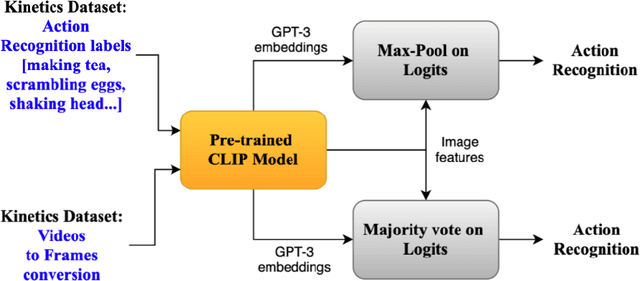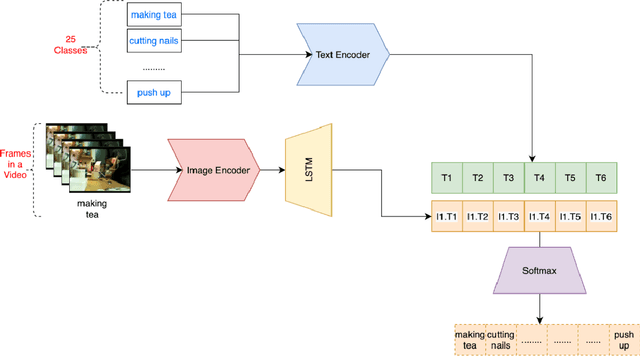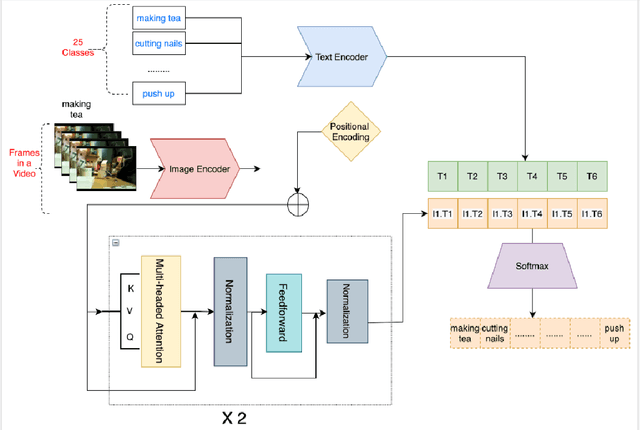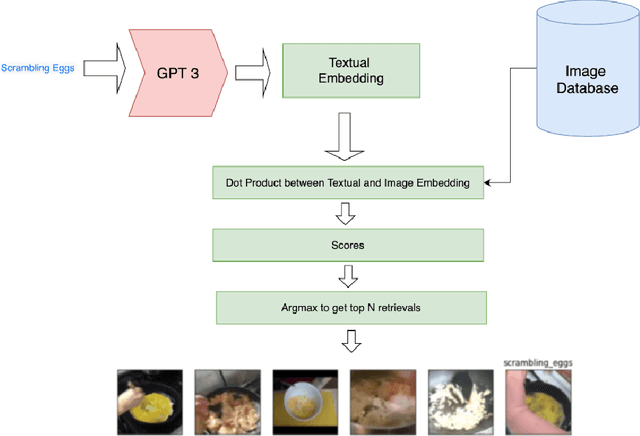Learning video embedding space with Natural Language Supervision
Paper and Code
Apr 08, 2023



The recent success of the CLIP model has shown its potential to be applied to a wide range of vision and language tasks. However this only establishes embedding space relationship of language to images, not to the video domain. In this paper, we propose a novel approach to map video embedding space to natural langugage. We propose a two-stage approach that first extracts visual features from each frame of a video using a pre-trained CNN, and then uses the CLIP model to encode the visual features for the video domain, along with the corresponding text descriptions. We evaluate our method on two benchmark datasets, UCF101 and HMDB51, and achieve state-of-the-art performance on both tasks.
 Add to Chrome
Add to Chrome Add to Firefox
Add to Firefox Add to Edge
Add to Edge